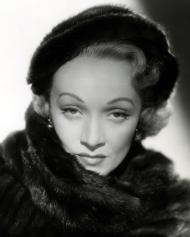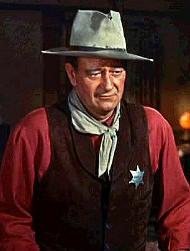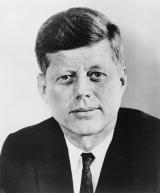Chi uscì con Marlene Dietrich?
Jean Gabin ha datato Marlene Dietrich dal ? al ?. La differenza di età era di 2 anni, 4 mesi e 20 giorni.
Yul Brynner ha datato Marlene Dietrich dal ? al ?. La differenza di età era di 18 anni, 6 mesi e 14 giorni.
John Wayne ha datato Marlene Dietrich dal ? al ?. La differenza di età era di 5 anni, 4 mesi e 29 giorni.
John Fitzgerald Kennedy ha datato Marlene Dietrich dal ? al ?. La differenza di età era di 15 anni, 5 mesi e 2 giorni.
Wilhelm Michel ha datato Marlene Dietrich dal al ?.
Erich Maria Remarque ha datato Marlene Dietrich dal al ?. La differenza di età era di 3 anni, 6 mesi e 5 giorni.
Marlene Dietrich

Marlene Dietrich, pseudonimo di Marie Magdalene Dietrich (/maɐ̯ˈleːnə ˈdiːtʀɪç/ ; Schöneberg, 27 dicembre 1901 – Parigi, 6 maggio 1992), è stata un'attrice e cantante tedesca naturalizzata statunitense.
Considerata tra le più grandi icone del cinema nella prima metà del Novecento, la Dietrich lasciò un'impronta duratura attraverso la sua recitazione, le sue immagini e l'interpretazione delle canzoni (arricchite da una voce ammaliante e sensuale). Fu una delle prime dive, grazie a un insieme di qualità che la fece entrare nella leggenda dello show business quale modello di femme fatale per antonomasia. Il suo mito nacque e si sviluppò in contrapposizione a quello di Greta Garbo, entrambe star di punta di due compagnie di produzione rivali.
L'American Film Institute ha inserito la Dietrich al nono posto tra le più grandi star della storia del cinema.
Per saperne di più...Jean Gabin

Jean-Alexis Gabin Moncorgé (Parigi, 17 maggio 1904 – Neuilly-sur-Seine, 15 novembre 1976) è stato un attore francese.
Considerato uno dei più grandi attori del Novecento, ha lasciato un'impronta indelebile grazie ai ruoli interpretati nella sua lunga carriera, durante la quale vinse, tra gli altri, due Coppe Volpi al migliore attore al Festival di Venezia, due Orsi d'argento al Festival di Berlino, un David di Donatello e un Premio César onorario.
Per saperne di più...Marlene Dietrich

Yul Brynner

Julij Borisovič Briner, noto come Yul Brynner, talvolta scritto anche Brinner (in russo Юлий Борисович Бринер?; Vladivostok, 11 luglio 1920 – New York, 10 ottobre 1985), è stato un attore russo naturalizzato statunitense. È entrato nella storia del cinema per aver interpretato ruoli da protagonista in alcuni colossal fra gli anni '50 e '60.
Per saperne di più...Marlene Dietrich

John Wayne

Marion Robert Morrison, dit John Wayne (/d͡ʒɑn weɪn/), est un acteur, réalisateur et producteur américain, né le à Winterset (Iowa) et mort le à Los Angeles (Californie).
Au cours de ses cinquante ans de carrière, il a joué dans près de 180 films, notamment des films policiers, des films de guerre et quelques comédies romantiques ; mais c'est dans ses nombreux westerns que John Wayne s'est réellement imposé, particulièrement sous la direction de deux réalisateurs : John Ford (La Chevauchée fantastique en 1939, Le Massacre de Fort Apache et Le Fils du désert en 1948, La Charge héroïque en 1949, Rio Grande en 1950, L'Homme tranquille en 1952, La Prisonnière du désert en 1956 ou encore L'Homme qui tua Liberty Valance en 1962) et Howard Hawks (La Rivière rouge en 1948, Rio Bravo en 1959, El Dorado en 1966 ou Rio Lobo en 1970). Il a tourné également plusieurs films sous la direction d'Henry Hathaway, dont Cent Dollars pour un shérif en 1969, qui lui valut en 1970 l'Oscar du meilleur acteur (l'unique Oscar de sa carrière).
En 1960, il passe derrière la caméra pour réaliser une fresque historique d'envergure, Alamo, relatant les derniers jours de Davy Crockett et ses compagnons lors de la révolution texane. Huit ans plus tard, il coréalise Les Bérets verts (1968), film engagé justifiant l'intervention américaine au Viêt Nam. Ses deux réalisations ont reflété l'engagement personnel de John Wayne, républicain et ardent patriote.
Classé 13e plus grande star de légende par l'American Film Institute en 1999, John Wayne a certainement été l'un des acteurs les plus représentatifs du western, une incarnation à lui seul de l'Amérique conquérante.
Surnommé « The Duke » (« le Duc »), il reste encore aujourd'hui, grâce à ses films, le symbole d'une ostensible masculinité. Il a interprété ce rôle d'homme viril, dur, solitaire et quelque peu machiste, mais généreux et au cœur sensible, tout au long de sa carrière, et ces rôles ont fini par influencer son comportement dans la vie, ses engagements allant de plus en plus vers le Parti républicain. Il déclara : « J'ai joué John Wayne dans tous mes films et ça m'a plutôt pas mal réussi. »
Per saperne di più...Marlene Dietrich

John Fitzgerald Kennedy

John Fitzgerald Kennedy, detto Jack o JFK (Brookline, 29 maggio 1917 – Dallas, 22 novembre 1963), è stato un politico statunitense, 35º presidente degli Stati Uniti d'America dal 1961 al 1963.
Nato nella influente famiglia Kennedy, cattolica di origine irlandese, si laureò all'università Harvard nel 1937. Allo scoppio della seconda guerra mondiale si arruolò, comportandosi valorosamente nel Pacifico e venendo insignito della Navy and Marine Corps Medal. Finito il conflitto aderì al Partito Democratico, si candidò nel 1946 alla Camera dei rappresentanti, nella quale ottenne un seggio, e nel 1952 al Senato, risultando nuovamente eletto.
Nel 1960 assunse la leadership del partito e si candidò alla presidenza, scegliendo Lyndon B. Johnson come candidato alla vicepresidenza. Nelle elezioni dell'8 novembre sconfisse il vicepresidente uscente Richard Nixon e s'insediò alla Casa Bianca il 20 gennaio dell'anno successivo. Fu il primo cattolico a diventare presidente.
La sua breve presidenza, in epoca di guerra fredda, fu segnata da alcuni eventi molto rilevanti: lo sbarco nella Baia dei Porci, la Crisi dei missili di Cuba, la costruzione del Muro di Berlino, la corsa allo spazio, gli antefatti della Guerra del Vietnam e l'affermarsi del Movimento per i diritti civili degli afroamericani.
Kennedy fu assassinato il 22 novembre del 1963 a Dallas, in Texas. Lee Harvey Oswald, un ex marine di supposte simpatie marxiste, fu arrestato poco dopo il fatto e accusato dell'omicidio, ma venne a sua volta ucciso due giorni dopo da Jack Ruby, prima di poter essere processato. L'FBI e la Commissione Warren conclusero che Oswald aveva agito da solo. Nel corso degli anni successivi numerosi interrogativi furono sollevati sulla dinamica dell'attentato e sulla reale identità dell'autore; nel 1979 la United States House Select Committee on Assassinations pubblicò un rapporto nel quale si concluse che l'atto di Oswald fu probabilmente frutto di una cospirazione.
Per saperne di più...Marlene Dietrich

Wilhelm Michel
Wilhelm Michel, genannt Willy Michel (geboren 1901; gestorben Juni 1988) war ein deutscher Bäcker, Kommunalpolitiker in Hannover, Wehrwirtschaftsführer für Niedersachsen sowie Liebessubjekt der Schauspielerin Marlene Dietrich. Die Anfang des 21. Jahrhunderts aufgefundenen Liebesbriefe der Dietrich an Wilhelm Michel gelten als „die frühesten bislang bekannten Dokumente des Weltstars.“
Per saperne di più...Marlene Dietrich

Erich Maria Remarque

Erich Maria Remarque, pseudonimo di Erich Paul Remark (Osnabrück, 22 giugno 1898 – Locarno, 25 settembre 1970), è stato uno scrittore tedesco.
Per saperne di più...